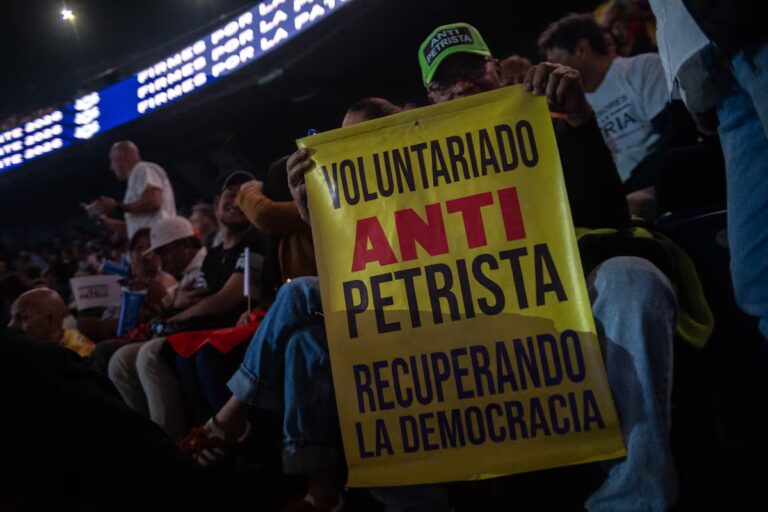
Fresh indigenous protests blocked access to the conference’s main entrance this Friday (14th), a day after the United Nations sent a letter to the COP30 organization complaining about the lack of security, mainly after demonstrators entered the restricted area. The federal government rushed to respond to the situation.
At the negotiating table, Brazil is also trying to resolve an impasse on the conference’s most sensitive topic. This time, it will adopt strategies already used by the G20 and BRICS to overcome possible differences and prevent decision-making from stalling.
And those participating in the negotiations on the Brazilian side complained about the exhausting journey. These are the diplomats who have anonymously accused Mr. Itamaraty of systematic harassment.
Below is a summary of the most important things to know about COP30 this Friday.
1.Mundurukus protests in front of COP30 against Lula government’s plan
Friday began with a protest by about 40 indigenous Munduruku people at the main gate of COP30. They are demanding the withdrawal of the National Waterways Plan and the cancellation of Ferrogran Island, saying the large-scale project threatens their territory. The demonstration was so peaceful and so many children took part that the military temporarily closed access to the event.
COP30 President Andre Correa do Lago and Conference CEO Ana Toni met with indigenous leaders in the morning, and the delegation was invited to a meeting with Minister Marina Silva (Environment) and Sonia Guajajara (Indigenous Peoples). Ministers explained the progress of processes such as land demarcation, clarified that Ferrogran does not have an approved license, and promised to forward other complaints to the relevant ministries.
After the conference, Alessandra Munduruku stressed the need for indigenous voices to be heard effectively at the conference. Once the protests ended, major access was reopened, but long lines formed for security. The act came days after another demonstration entered the COP’s Blue Zone, amid criticism from the United Nations over security and infrastructure deficiencies at the event.
2. COP30 considers package decisions to overcome impasse
Brazil, which holds the COP30 presidency, is trying to prevent negotiations from being hampered by four issues considered sensitive: financing, climate targets, trade measures and transparency. The idea is to bring together debates about money, an issue that won’t move forward on its own, primarily contested by rich countries’ resistance to expanding resources to developing countries. By packaging interrelated themes, Brazil aims to bring simultaneous, if partial, progress to all.
This strategy is not new and has already appeared in forums such as the G20 and Brics. The Presidency will evaluate a variety of arrangements, ranging from a single decision with four themes to a pair of joint decisions. The logic is to ensure some balance. So, no one is going to take everything away, but no one is going to be completely stuck either. Nevertheless, it cannot be ruled out that some of these issues may return to the formal negotiation agenda. Following further discussions, the transfer should be announced this Saturday (15th).
3. Diplomats complain of burnout and blame harassment within their organizations
Career Itamarati employees reported very tiring working hours at COP30, with up to 16 hours of work for 20 consecutive days, without breaks or compensation. The diplomats’ union has received dozens of complaints, which will be submitted to the Ministry of Labor. Prime Minister Itamaraty acknowledged the heavy workload involved in multilateral events and said overtime work would be compensated.
The union says the system doesn’t allow people to record more than 10 hours in a day, so some of those hours don’t even show up in records, creating “invisible time.” Diplomats describe the impromptu situation in Belem, the lack of stopovers and the permanent shift system, especially for young people. They end up accepting grueling working hours because they depend on their bosses for promotions and posts overseas. This practice has already caused burnout at past tournaments such as the G20 and Brics.
The group recalls going to court already this year to seek changes, but says the problem was repeated at COP30. For unions, this issue highlights the need to guarantee workers’ rights, preserve the health of employees, and align the terms of Brazilian diplomacy with the official debate on human rights.



